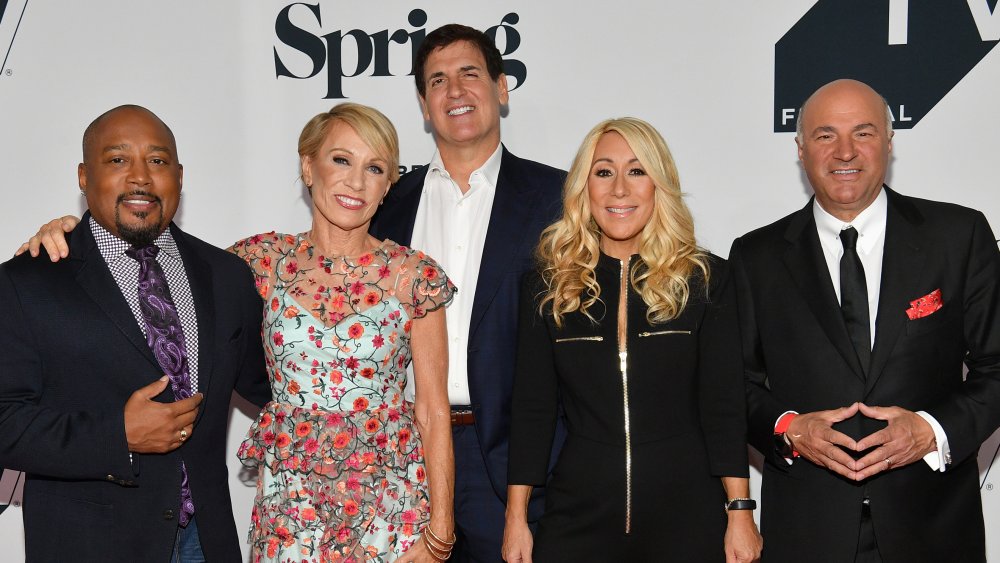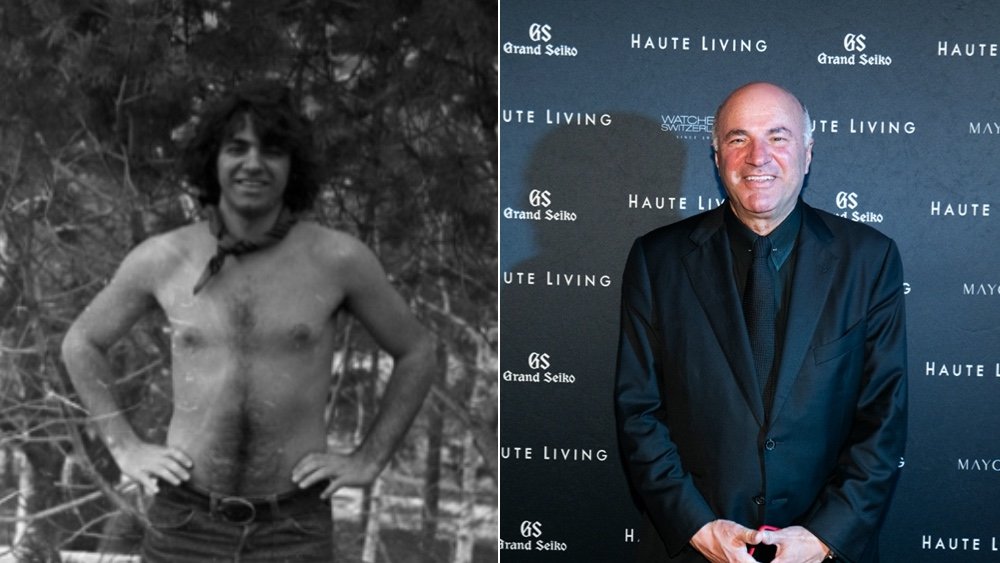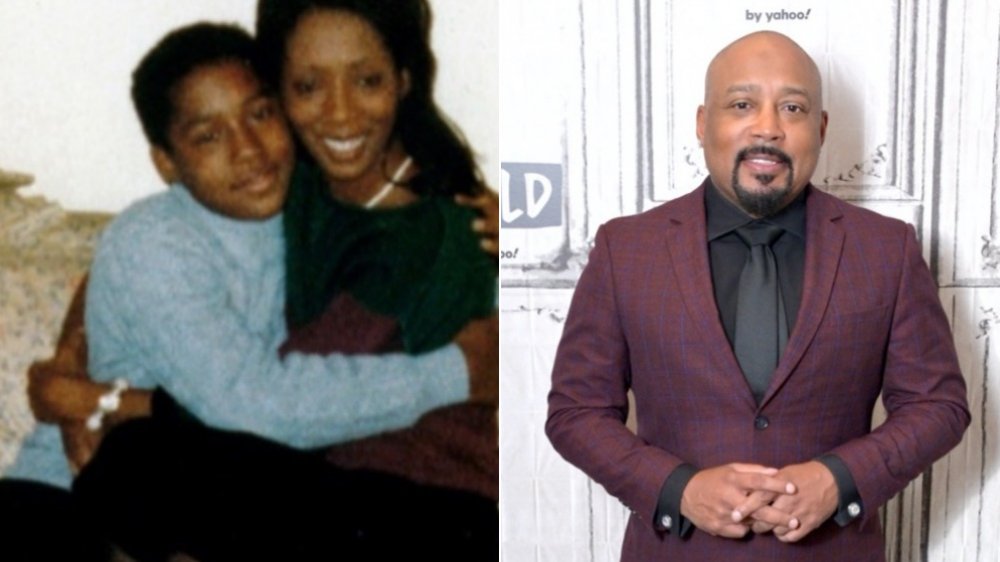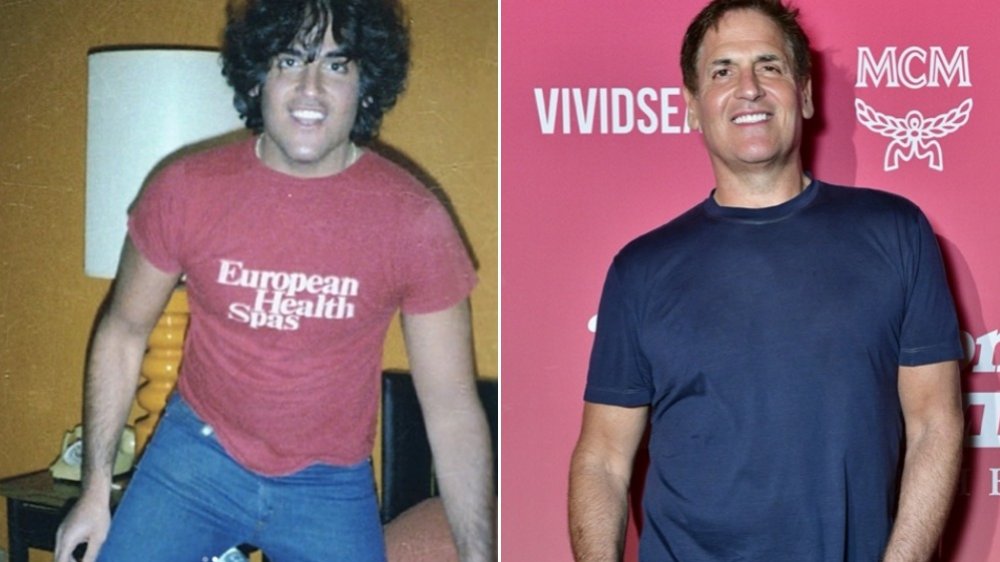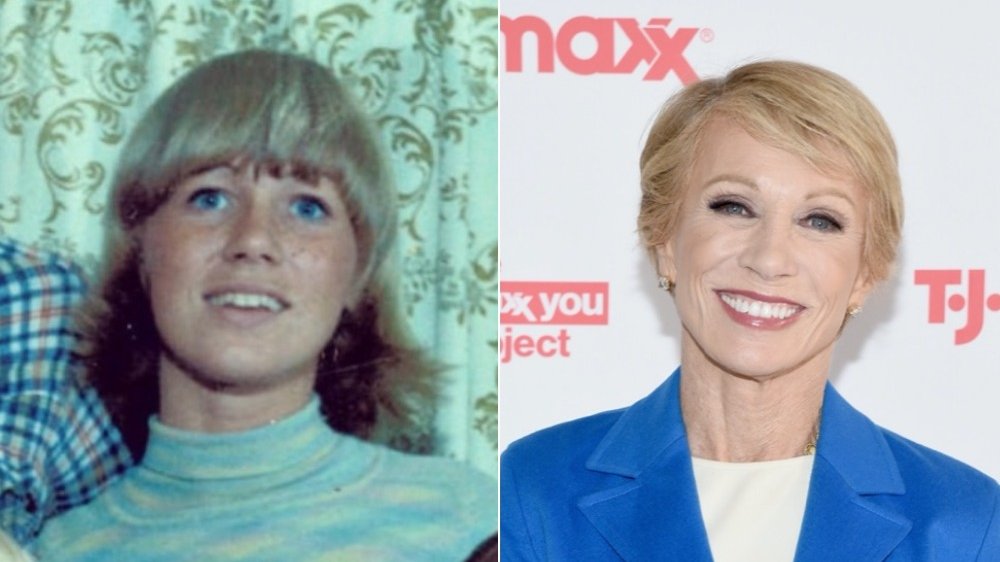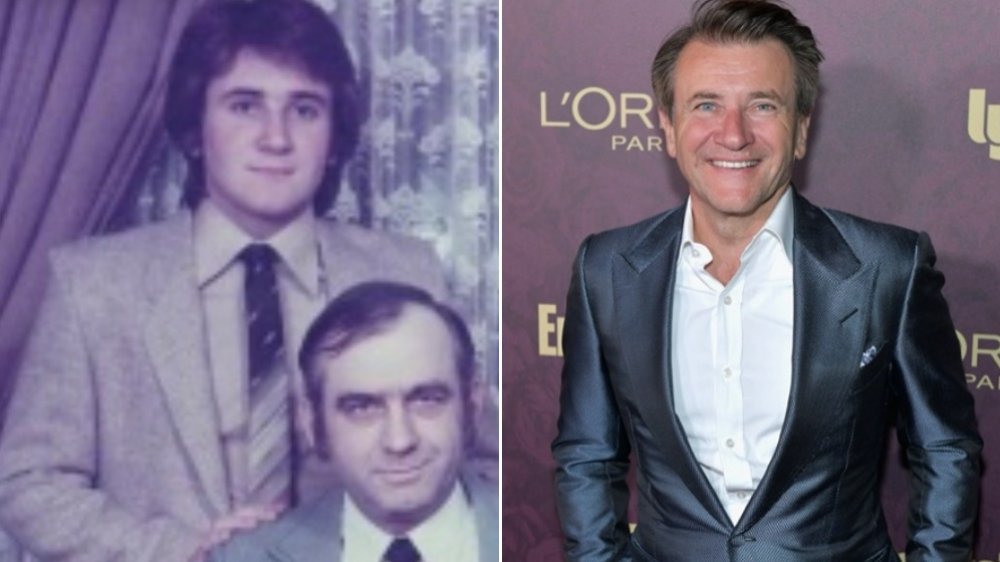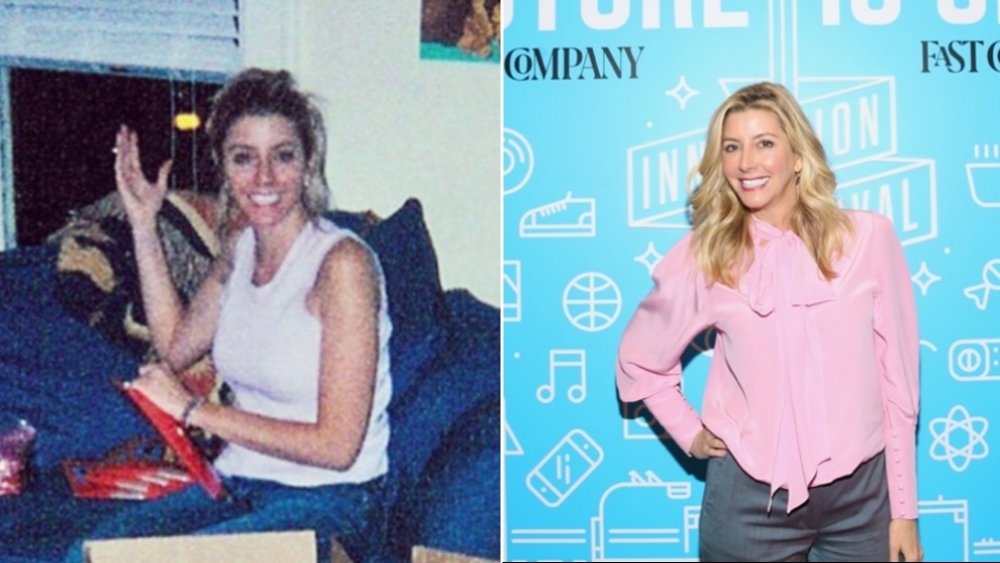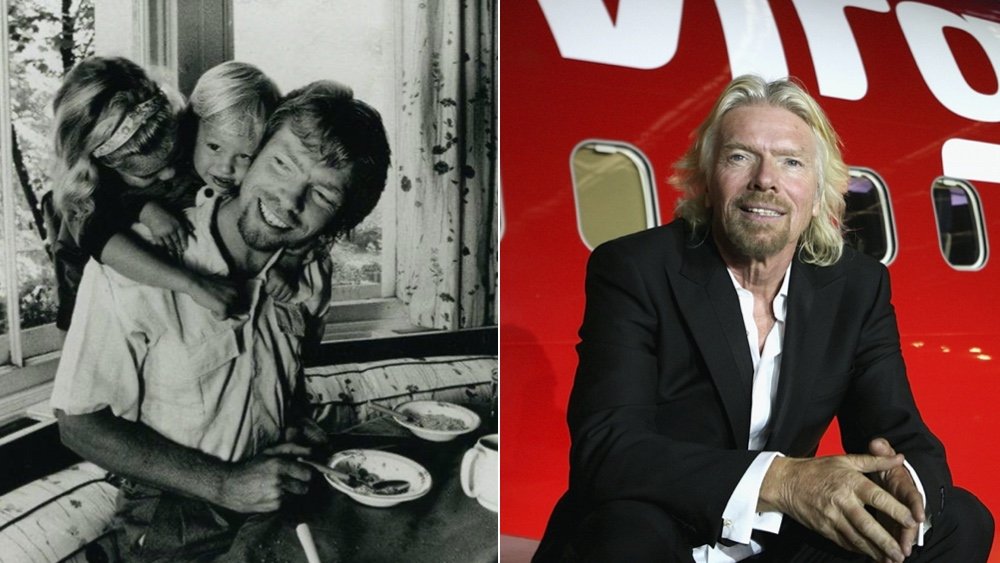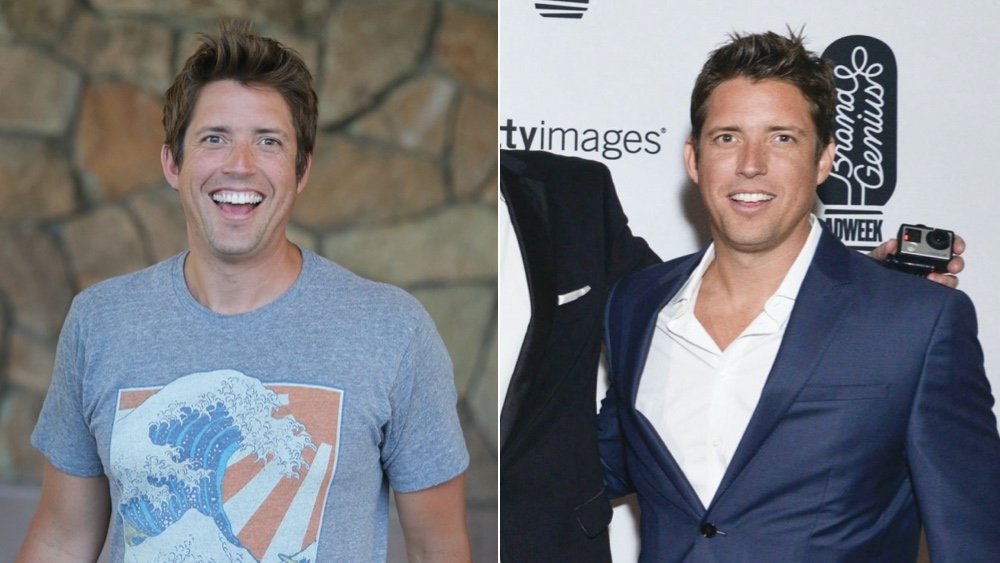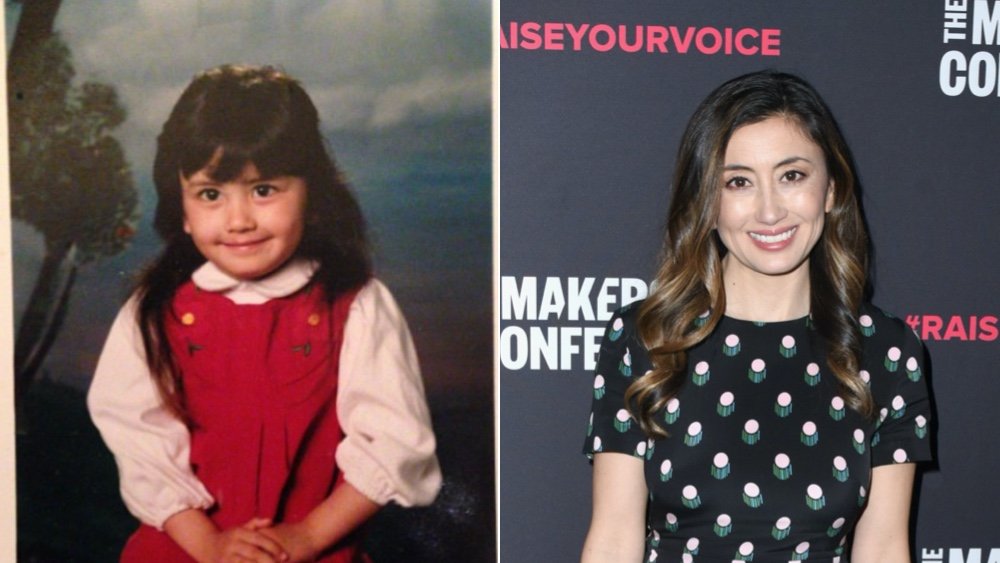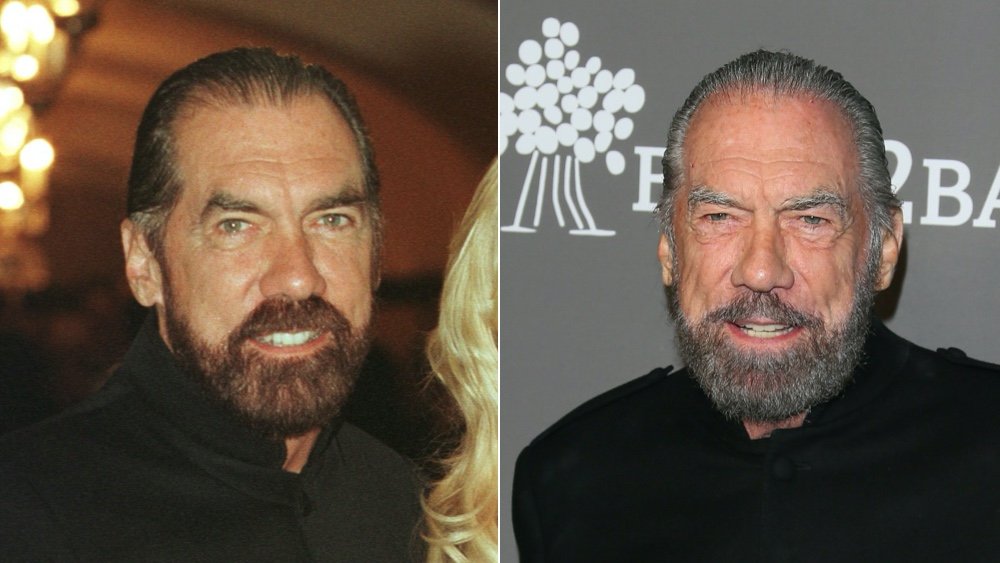What The Sharks Of Shark Tank Looked Like Before All The Fame
It takes guts to quit the safety of your day job and risk everything you have for a business idea you believe in. Before the sharks of Shark Tank earned their millions, they had millions of decisions to make to get them there, and one of those decisions was whether or not they should even appear on the popular television series. "I passed on it because, you know, when I found out that we were going to spend our own money, I said, 'What? I thought I was going to get paid to be on television," shark Daymond John told CBS New York. However, after season one, he realized the power that the series had.
The sharks have made millions from their investments on the show, and just like their bank account numbers, the show has given entrepreneurs nowhere to go but up, regardless of whether or not they get a deal with one of the sharks. "It really does accelerate these companies in a way that traditional venture investors never saw. They never saw Shark Tank coming," shark Kevin O'Leary told Vulture. "Now, they beg to get their products on because you get customer acquisition by the tens of millions and you get it for basically free."
Before they were first up in the tank, the millionaire and billionaire investors starring on Shark Tank had to start somewhere too. This is what the lives of the sharks of Shark Tank looked like before all the fame.
Kevin O'Leary made himself a wonderful world to live in
Growing up, the self-proclaimed "Mr. Wonderful" would have never dreamed that he'd be the millionaire he is today. "Kevin was unpredictable when he was a teenager," his stepdad once divulged in a behind-the-scenes segment. "And could not figure out what he was going to do."
Though Kevin O'Leary spent much of his childhood being raised around the world because of his stepfather's job, it was his time scooping ice cream that he says changed his life. On day two of the job, his boss asked him to "scrape gum off the floor," but he didn't want to. It was his first job, and she fired him on the spot. "Within minutes, I was on my bicycle on my way home in utter shame, in shock that she had that kind of control over my life," Mr. Wonderful explained, and it's exactly what led him to entrepreneurship. "I have never ever in my life worked for someone again."
The shark-in-the-making began by borrowing $10,000 from his mother to begin a software company in his basement that he later sold for over $4 billion (via KevinOLeary.com). His net worth is now estimated $400 million — a fortune that had television calling. Before ever uttering "you're dead to me" on Shark Tank, O'Leary first began investing in other businesses on the Canadian version of the same show, called Dragon's Den.
Lori Greiner needed to organize her earrings
The Queen of QVC started her career with a problem that she surprisingly had long before she became a millionaire — she had so many earrings, she didn't know what to do with them. After failing to find an adequate jewelry organizer in the retail market, she set out to make it. However, it wasn't so easy at first to create a hero from zero. Unlike the mentorship that other entrepreneurs receive on Shark Tank, Lori Greiner had no one to ask for advice. "I had to figure things out on my own," she told Parade, and she quickly did.
After numerous cold calls to various retailers, and drawing $250,000 from a $300,000 line of credit, Greiner got her jewelry organizer into J.C. Penney and the Home Shopping Network (per Invent It, Sell It, Bank It!). On air, she sold out of 2,000 of them within five minutes and immediately knew she needed to expand her product line (via Forbes). She started her own company called For Your Ease and soon landed her own show on QVC.
Her inviting television presence caught the eye of a casting director for Shark Tank, who told her "'there isn't anyone out there like [you] who creates a product, makes it, packages it — everything from soup to nuts. America could learn a lot from you,'" Greiner explained to Parade. "When she said that, I was immediately on board." She's now worth an estimated $150 million.
Daymond John had a passion for fashion
Before fame found fashion guru Daymond John, he was just looking for something to wear.
The young entrepreneur grew up in New York City, just when hip hop was beginning to hop its way into his neighborhood. He quickly became intrigued. "It came with a way to walk and a way to dress and it was engaging and I wanted to be a part of it," he told CNN. However, some clothing brands didn't want their wares worn by those bringing hip hop to new heights, so John decided to make his own cool clothing, which he managed to get artists to wear. His brand FUBU — For Us By Us — was his way of fitting into the music scene, and it quickly took off. What started out as more of a hobby to stay engaged in the hip hop community eventually ended up as a $6 billion company (via DaymondJohn.com), with John's personal net worth estimated at $300 million.
John initially had no interest in anything else, so when the executive producer of Shark Tank first called him, he thought, "This crappy show? Nobody will ever watch it," he admitted to Business Insider. However, after the show became a success, like any other entrepreneur, he chased the new business opportunity, telling the same outlet in a different interview that he saw the show as an opportunity to "diversify [his] portfolio."
Mark Cuban made himself more than millions
Looking back, this Pittsburgh native never thought he'd become a billionaire. "My mom, when I was in high school, was worried about whether or not I could have a career," Mark Cuban admitted to Goldman Sachs. After graduating from Indiana University, he'd been fired from his job, slept on the floor of an apartment with five other guys, and had hardly any money to his name. It was then that Cuban created his own company, MicroSolutions, with a $500 loan. That tiny company eventually became a pioneer in local area network technology, and Cuban later sold it for $6 million.
Being an avid sports and software lover, Cuban invested his money in a way to watch his college's football team, the Hoosiers, play while he was living in Dallas. When the internet was just beginning, he developed the streaming website Audionet, which later became Broadcast.com. "I literally was putting everything that I had on the line for something that people just laughed at me and said, 'Wait, audio over the internet? You know, you can turn on the radio. You know, you can turn on the TV.'" Within four years, he sold it to Yahoo! for $5.6 billion (via Mark Cuban Companies).
He hopes his own entrepreneurial spirit is the "legacy" Shark Tank will have, too. "With an idea, with effort, with a little bit of chutzpah, anything is possible no matter who you are, what you look like, or where you're from," he told Vulture.
Barbara Corcoran could never be replaced
Real estate mogul Barbara Corcoran contributes her successful career to growing up poor alongside her nine siblings. No one expected her to succeed, and she sees that in many of her entrepreneurs she invests in on Shark Tank.
Corcoran began her first business at age 23 with $1,000 that she had borrowed from her boyfriend. With him as her partner, they set out to take over the real estate business in New York City. However, five years later, he left Corcoran for her assistant and fueled a fire in her when he said, "You'll never succeed without me," she explained to Inc. Corcoran went on to build the largest company in the brokerage business that she eventually sold for $66 million.
When Corcoran was asked to join Shark Tank, she thought she had really made it big. "I think I told everyone I knew I'm going to Hollywood — I'm going to Hollywood!" Corcoran admitted to Business Insider. However, she later received a call saying that the producers had changed their minds and offered the role to someone else. She became angry at being replaced for the second time in her life and wrote a heated letter that grabbed their attention and landed Corcoran a permanent role on the show. She has since invested in more than 80 businesses (via BarbaraCorcoran.com). "My most successful entrepreneurs didn't all have miserable childhoods, but somebody said they couldn't, and they are still pissed," Corcoran told Inc.
Robert Herjavec immigrated to I.T.
Millionaire Robert Herjavec grew up in Yugoslavia in a house with dirt floors and no running water, which is drastically different from his lifestyle today. When he was 8 years old, his family immigrated to Canada on a boat to escape the communist country and provide a better life for little Robert (via Inc.).
However, Herjavec had no idea what he wanted to do with his life. "I wanted to be a detective, a vet, a racecar driver. I was so unfocused," he told ABC. He never thought he'd end up an entrepreneur. He even admitted to Inc., "I went to college for a business degree but thought it was boring." After graduating, he still had no idea what to do. His friend suggested he apply for a job at a computer company, but he thought that sounded boring too — until he heard the salary. From there, his career with computers began.
Herjavec sold his first company, which he started in his basement, to AT&T for $30.2 million (via Entrepreneur). He then took over another business that sold for $225 million (via Business Jet Traveler). He even came out of an early retirement to create a cybersecurity company called Herjavec Group, and he owes it all to his parents. "To work that hard and to go through that much pain, and then for me to squander it and not do something with my life, that would have been undeserving for them," he told ABC.
Sara Blakely shipped Spanx from her apartment
Spanx creator Sara Blakely was never sure what to do with her life, but she knew she was good at sales after seven years of selling fax machines door to door. Before getting that gig, she had failed the LSAT and lost out on the role she wanted at Disney World, and this seemed to be the only job she knew she could get. "It was the kind of place that would hire anyone with a pulse," she told CNBC. It wasn't her dream job by any means, but it was her way of saving up for something even bigger.
One day, Blakely had the idea to cut out both feet on a pair of pantyhose to help her look her best in white pants. "This allowed me to benefit from the slimming effects of the pantyhose's 'control top' while allowing my feet to go bare in my cute sandals," she explained, and that was the moment that changed everything. "The moment I saw how good my butt looked, I was like, 'Thank you, God, this is my opportunity!'" For three years, she used her apartment as her headquarters and didn't quit her day job until she eventually got Spanx into both Neiman Marcus and Saks Fifth Avenue (via Facebook).
As of this writing, this guest shark is worth an estimated $1.2 billion. "It's hard to look around all of this and think it started with some cellulite," Blakely joked to CNN.
Richard Branson went from booking bands to booking flights
Guest shark Richard Branson was an entrepreneur when he was only 15 years old, starting a magazine he hoped would become the next Rolling Stone (via Oprah.com). He financed it by selling ads, including his own which touted a business selling records at a discounted price under the moniker Virgin Records. "And then we even started signing our own bands," he told Khan Academy, noting that it all started with a track that made its way into the 1973 film The Exorcist. Before long, he signed The Sex Pistols and The Rolling Stones.
From there, the Virgin Group expanded, most notably into air travel. Why? "Because I had record companies all over the world, and I was traveling a lot on other people's airlines," Branson said. While it seems like a completely different business than music, Branson began giving his passengers an in-flight experience that no other airlines had at the time — seatback televisions. "We're from the entertainment business, so we know that people like to be entertained," he said. It seems there's nothing Branson can't do. Ever since, the Virgin Group has expanded into more than 60 different businesses (via CNBC).
Funny enough, he admitted to Entrepreneur that he "never thought of [himself] as being an entrepreneur or business person." However, money talks. He went from practically failing all his classes as a teenager to developing a brilliant business plan that earned him an estimated net worth of $4 billion.
Nick Woodman went surfing and came back with GoPro
Before Nick Woodman was ever a guest shark, he was a surfer who wanted to take some awesome photos. It all began when his first business failed. He wasn't sure what to do next, so he "took what little savings [he] had and planned a five month surf trip around the world," he told The Late Show with Stephen Colbert. As he was packing his bags, Woodman made a small "wrist camera" to shoot photos of a friend on the water. Everyone was impressed with the idea, and Woodman realized he was onto something. That something became GoPro.
After five months surfing with his GoPro prototype, Woodman moved in with his parents to build up enough savings to create his new business. However, when he spoke to more surfers about his idea, he decided he needed to, instead, create a small camera that could be mounted to a wearer — not to a wrist. "That's when GoPro really took off, because we eliminated the need to have somebody else shooting you," Woodman told Dennis Kirk, Inc.
Woodman is now worth an estimated $800 million for an idea that simply helped him enjoy one of his hobbies even more. "I wanted to be an 'inventor,'" he told GQ. "When I launched [my first company] Funbug, I was trying to find a business to launch. It wasn't my passion, it was work. GoPro never felt like work."
Katrina Lake had a fix for the future of fashion
Guest shark Katrina Lake began her journey into the business world when she saw a different future for fashion. "There's no way that the future of buying jeans is going to be spending a day at the mall or even searching online," she told The Cut. "Searching online for jeans is a ridiculously bad experience." Lake knew exactly what was missing from the industry and realized she could be the one to change it, so she set out to create a personalized clothing subscription box called Stitch Fix.
It all started after Lake took a job at a consulting firm. "I loved analyzing businesses and getting to understand how they worked," she said, and that's when she noticed the challenges that were facing retail stores. "People were trying to figure out what is the role of stores in the future, and how does e-commerce fit in?" She saw the solution in Stitch Fix. At first, Lake had a lot of trouble landing an investment. She even went back to business school to figure out exactly what to do, and, luckily, it all paid off.
Her business went public in 2017 and made her the youngest female CEO to ever do so. Stitch Fix has since had over $1 billion in sales, and the company's stylists help dress 3 million clients across the country. "We take this idea of personal styling and we make it accessible to all," she told ABC.
John Paul DeJoria went from hair care to billionaire
John Paul DeJoria faced many challenges before becoming successful. He was in foster care, had been fired from multiple jobs, and even experienced homelessness, but those experiences helped him rise to be the fearless billionaire he is today. After all, "the only way I could go was up," he told NBC News.
His first business began after being fired from two hair care companies, so DeJoria teamed up with his good friend Paul Mitchell to begin their own line of hair products (via NBC News). "Paul never did business. I never did hair, so we were perfect partners," DeJoria told Business Insider. They started with just $700, and within two years had a million dollar company. As if he wasn't successful enough, a few years later, another business venture came his way. "I was given the opportunity to create the finest tequila in the world and decided why not give it a try," he told the outlet, adding, "If not, I'd have bottles of tequila to give as presents for everyone for years to come." DeJoria began by offering samples at a Paul Mitchell event, and the rest is history. Patrón Spirits Company was born.
As of this writing, DeJoria has an estimated net worth of $4 billion. As a guest shark, he helps other businesses rise from the ground too, or as he puts it: "It's so easy to give and help others because you remember where you were before."

